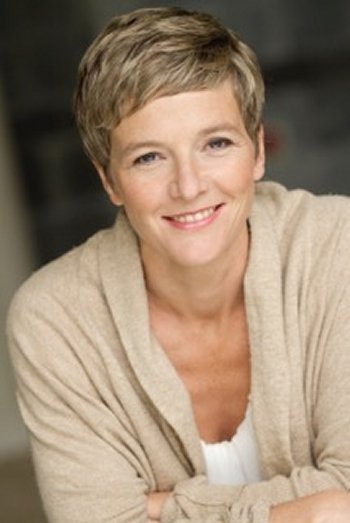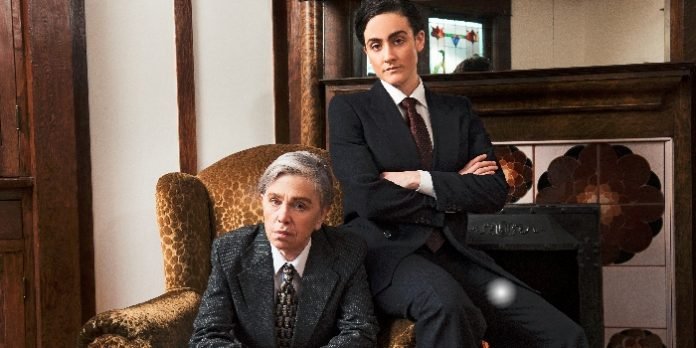What if Shakespeare had written The Godfather? David Mann may have reinvented the classic Puzo novel and Coppola movie with Corleone: The Shakespearean Godfather, but it is Classic Chic Productions who take it one step further.
The Vancouver theatre company, founded on the idea of providing women the opportunity to play powerful male roles, presents the tale of power, destiny, betrayal, and honour with an all-female cast.
Having previously presented all-female versions of Shakespeare’s The Winter’s Tale and Mamet’s Glengarry Glen Ross, it is perhaps not such a surprise they are now tackling Mann’s mash-up.
Closely following Mario Puzo’s original story, and by extension Francis Ford Coppola’s award-winning 1972 film, Corleone: The Shakespearean Godfather may use iambic pentameter, but it retains the familiar tale of the Corleone mob family.
“I love the script because you realize when you do it, that The Godfather really is Shakespearean in its sheer ‘epicness’, part tragedy like a Hamlet, part history play like a Henry V,” says Classic Chic artistic director Christina Wells Campbell.
“What the Shakespearean element brings is this idea of a contemporary tragedy,” adds director Mindy Parfitt. “It creates a playfulness to the piece, but it also points out the devastation of the choices Michael decides to make”.
“In Shakespeare’s time audiences bought into the fact women were played by men, so I don’t see why an audience now wouldn’t buy into the fact women are playing men.” – Mindy parfitt
For Pacific Theatre’s artistic director Ron Reed, who is presenting Corleone as a guest production, the parallels between The Godfather and Shakespeare are striking.
“The Godfather is a classic tragedy, and when the film is rendered in Shakespeare’s language, and when we begin to notice parallels with Richard III or Macbeth or Hamlet, those archetypal tragic patterns have a powerful dramatic effect,” says Reed.
Having wanted to stage the play for over a decade, but unable to do so because of the sheer size of the cast, Reed saw his opportunity during a conversation with Classic Chic’s Corina Akeson.
“Mulling [our conversation], I connected the dots between their previous shows, Shakespeare, film, testosterone-soaked man’s world … and Corleone popped into my head,” says Reed.
As with previous Classic Chic productions, the entire cast of Corleone will be played by women, an opportunity, says Parfitt, for audiences to experience these familiar characters in a new way.

“I think the audience will be surprised how easily they forget about women playing the men,” she says.
But even while all the male characters in Corleone are played by women, so too are the female roles, including a female chorus which Parfitt says is an important part in Mann’s story.
“One of the things that is really interesting in the play is this element of the chorus,” says Parfitt. “We have this young female chorus that helps guide audiences through this masculine and aggressive story.”
Even with an all-female cast and the addition of a chorus, Parfitt says audiences will immediately recognize the story.
“It will be very familiar to anyone who knows the first Godfather movie,” she says. “In the play though we see more into the choices Michael makes, and how it impacts him. It’s not just about being a gangster, but it is also a tragedy about having to make hard choices.”
Parfitt goes onto say that audiences should not expect any impersonation of Marlon Brando’s performance as Vito Corleone.
“I love that Nicola [Lipman] is physically very small,” she says. “It then becomes a question of how do we support the idea of this person, who doesn’t have big huge physical appearance, becoming the boss and running the family. It is a very different from Marlon Brando.”
For Parfitt, a big part in ensuring the success of Lipman and the rest of her cast in playing these powerful men is in telling the story with honesty.
“What is important for me is that the audience gets involved in the story, is attached to the characters, and wants to know what is going to happen,” explains Parfitt. “I’m not thinking as a director that these people are women.”
While Parfitt insists gender is secondary to story, it was also important during the rehearsal process for the women to inhabit their male characters. Part of that process included a workshop on interpreting how woman play men, and in the cast’s physical transformation.
“It was important for the women to become the men because it is such a big transition,” she says. “As we progressed it’s been important for the actors to get into the hair and make-up early. Getting the shoes was important part as well.”
In helping her cast prepare for their roles as men, Parfitt has preferred a conversation over a strict directorial approach. It has included discussion on some unusual topics.
“We talked about things like genitalia, and how it is different outside body,” she says. “How does it make you sit, or in a confrontation, how you might protect yourself differently.”
Ultimately though, Parfitt says the idea of women playing men is unimportant.
“In Shakespeare’s time audiences bought into the fact women were played by men, so I don’t see why an audience now wouldn’t buy into the fact women are playing men.”
Corleone: The Shakespearean Godfather plays Pacific Theatre (1440 West 12 Ave, Vancouver) from Feb 3-25. Visit https://pacifictheatre.org for tickets and information.

